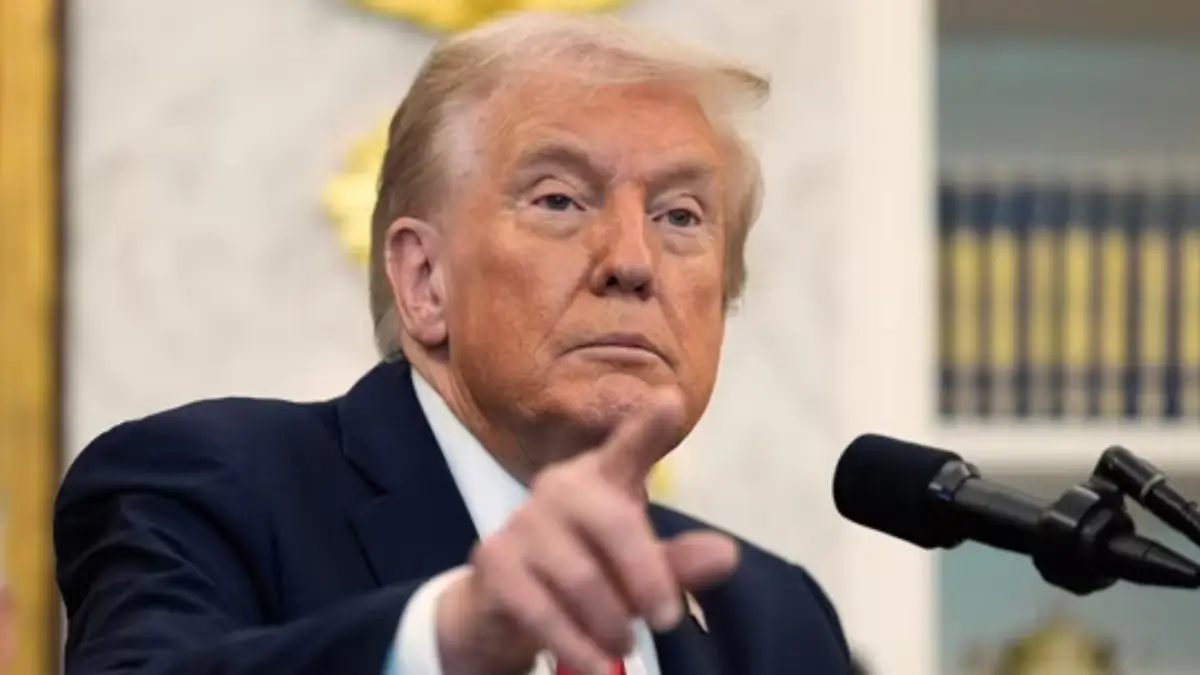Washington: President Donald Trump’s abrupt social media declaration directing the U.S. military to resume nuclear weapons testing sent shockwaves through Washington and beyond, sowing confusion just hours before a key Senate confirmation hearing.
The announcement came at 9:04 p.m. on Wednesday, as Trump posted that he had instructed the Pentagon to begin testing to prevent the United States from lagging behind rivals. “Russia is second, and China is a distant third, but will be even within 5 years,” he wrote, timing the message ahead of his summit with Chinese President Xi Jinping in South Korea.
The post upended preparations for Thursday’s Senate Armed Services Committee hearing for Navy Vice Admiral Richard Correll, Trump’s nominee to command U.S. Strategic Command (STRATCOM), the military branch overseeing nuclear deterrence. Lawmakers bombarded Correll with questions about the implications.
ALSO READ : “Bill Gates Finally Admitted He Was Wrong”: Donald Trump On Climate Crisis Remarks
Senator Jack Reed, the panel’s top Democrat, probed whether restarting explosive tests—halted by a U.S. moratorium since 1992—would destabilize global security and spark an arms race. Correll responded cautiously: “If confirmed as the commander of STRATCOM, my role would be to provide military advice on any discussions on the way ahead with respect to testing.”
Independent Senator Angus King suggested Trump might mean testing delivery systems like missiles, not warhead detonations. “I don’t have insight into the President’s intent. I agree that could be an interpretation,” Correll replied.
Vice President JD Vance defended the idea, stating it ensures the U.S. nuclear stockpile remains operational amid advanced computer simulations that have replaced live blasts.
Experts warned of peril. Tara Drozdenko of the Union of Concerned Scientists argued: “There is no good reason for the United States to resume explosive nuclear testing—it would actually make everyone in the US less safe.” James Acton of the Carnegie Endowment for International Peace doubted it would pressure China into arms talks.
Only North Korea has exploded a nuclear device this century, in 2017. Russia faces U.S. accusations of covert low-yield tests but denies full-scale blasts, while Putin warned of retaliation. China urged adherence to the testing ban.
Ploughshares Fund cautioned that resuming tests would aid adversaries’ development, given America’s 1,030 prior explosions. Nevada Senator Jacky Rosen, whose state hosted tests from 1951-1992, vowed opposition: “I’m going to be crystal clear: I will not let this happen. Not on my watch.”
